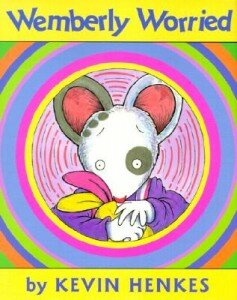 Today is Wednesday. On Wednesdays I work all day and then take my kid to the therapist. A. is four years old, so she doesn’t go to therapy the way you and I go to therapy. She doesn’t sit on a leather couch and complain about how her pre-school teacher doesn’t really understand her, or about how the fact that she isn’t allowed to bring peanut butter into the school has made her obsessed about the tiny existential risks we face every day —we can die at any moment, when you think about it, we can be hit by a bus while we’re walking to the playground!— or about how despairing she’s become about the political system and the prospects for real social change in post-industrial America.
Today is Wednesday. On Wednesdays I work all day and then take my kid to the therapist. A. is four years old, so she doesn’t go to therapy the way you and I go to therapy. She doesn’t sit on a leather couch and complain about how her pre-school teacher doesn’t really understand her, or about how the fact that she isn’t allowed to bring peanut butter into the school has made her obsessed about the tiny existential risks we face every day —we can die at any moment, when you think about it, we can be hit by a bus while we’re walking to the playground!— or about how despairing she’s become about the political system and the prospects for real social change in post-industrial America.
At least I don’t think she does. I’d be impressed.
No. A. goes to “play” therapy. This means that she plays with toys while a very nice woman without shoes observes and interacts with her. It’s basically like pre-school, except she doesn’t have to share the toys and while she plays I’m forced to sit in the waiting room and dodge wooden blocks being thrown at my head by kids with ADD.
A. doesn’t have ADD. In fact, I don’t think that there’s anything wrong with her at all except for the fact that her temperament is a bit … edgy. She’s always been this way. She came out of the womb this intense little thing six-pound thing with blond hair and blue eyes: intense and sensitive and change-averse and uncompromising and just … just intense.
I shouldn’t use the word “intense.” For a while my wife was using the word “spirited.” She got this from the bestselling book Raising Your Spirited Child, by Mary Sheedy Kurcinka, the subtitle of which may as well be “What to Do When Your Kid Makes You Want to Stab Yourself in the Neck With a Penknife.” One of the main goals of Kurcinka’s book is replace negative with positive or neutral language when talking about intense/spirited kids:
You probably haven’t heard the word spirited children before. That’s because it’s mine. When my son, Joshua, was born, there weren’t any spirited child classes or books. In fact the only information I could find that described a child like him used words such as difficult, strong-willed, stubborn, mother killer, or Dennis the Menace. Yet I realized that Joshua was much like his father, a high-energy, sensitive, passionate, and prudent adult whom I love dearly.
My first response to this passage was … mother killer?!? I’d never heard that term applied to anyone except the Menendez Brothers, or Emperor Nero. But, then, I don’t leave the house that often. Maybe it’s more common than I knew. Maybe people have been going for years around saying things like, “Psst, Barbara! Did you see that weeping and rubbing sand in his own hair? What a mother killer!” In which case I’m all for “spirited.”
But my wife and I didn’t have the words “spirited” or “intense” in mind when we decided to bring A. to a play therapist. The word we had in mind was “anxious.” And in fact, during our first conference with A.’s therapist, this is the word she used, too.
“A. seems,” she said, “like your classic anxious child.”
We were in her office when she told us this, sitting with our knees up to our chins because there is not a single piece of adult-human-sized furniture in the woman’s office and all the chairs are about six inches from the ground. Neither of us was surprised, but I think it’s fair to say that we both felt really, really bad. We both know how difficult it is to be an anxious child because we were both anxious children. This helps in empathizing with A., and it helps in anticipating what she needs and what her reactions to certain social situations will be. But it doesn’t obviate the guilt. The guilt is always there because, when you get right down to it: it’s our fault that the kid is anxious.
What did we expect would happen if two people like us go together and procreated? It was inevitable that A. would suffer from anxiety. The kid never stood a chance. We even talked about the fact that we were certain to have an anxious child before we decided to have children. But that didn’t stop us. We did it anyway, because we love each other and are selfish and wanted to have a child. So now we know: we were right. And A. gets to go and play every week so that a stranger can suggest ways to help her deal with things better.
And I have to dodge blocks in the waiting room.






